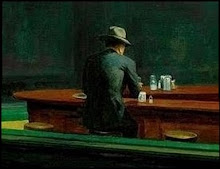Richard Rorty has argued that Foucault's so-called 'archaeology of knowledge' is fundamentally negative, and thus fails to adequately establish any 'new' theory of knowledge per se. Rather, Foucault simply provides a few valuable maxims regarding the reading of history:
"As far as I can see, all he has to offer are brilliant redescriptions of the past, supplemented by helpful hints on how to avoid being trapped by old historiographical assumptions. These hints consist largely of saying: "do not look for progress or meaning in history; do not see the history of a given activity, of any segment of culture, as the development of rationality or of freedom; do not use any philosophical vocabulary to characterize the essence of such activity or the goal it serves; do not assume that the way this activity is presently conducted gives any clue to the goals it served in the past."
– Rorty, R. "Foucault and Epistemology", 1986,
dc
Neanderthals are Homo sapiens
Hace 7 horas









